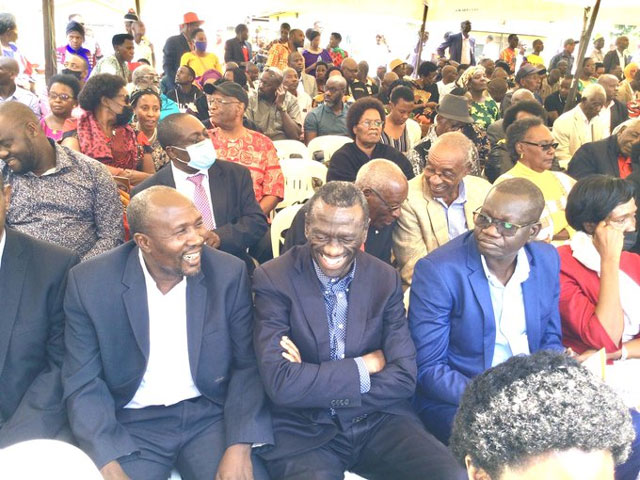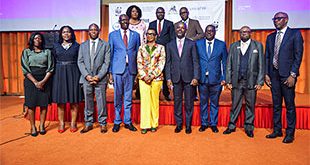
Arua, Uganda | THE INDEPENDENT | Retired Col. Dr. Kizza Besigye and Patrick Oboi Amuriat, the incumbent president of the Forum for Democratic Change (FDC) party, have acknowledged that unity between them is essential for achieving impactful leadership in Uganda.
The opposition political leaders made these comments during the last funeral rite of the late John Drazu Arumadri from Kasu Cell, Komite Ward, Ayivu West in Arua City on Monday evening. The bishop of Arua Diocese, Rt Rev. Sabino Ocan Odoki, led the mass, and expressed gratitude to Besigye and Amuriat for being present during the first and last funeral rites of the late Arumadri, but urged them to unite for Uganda to grow.
“That day you were in one camp. Today, I don’t know. We need to pray also for this because I’m sure Honorable John Arumadri would have loved that you have come together…prayer because what we want in Uganda is unity and love. Uganda will not grow if you continue to go into factions,” Odoki said.
Arumadri, who was an FDC supporter and Member of Parliament for Madi Okollo, died in 2021 before the FDC party broke into the Katonga faction led by Dr. Besigye, and the Najjanankumbi led by Amuriat. During the last funeral rite, Amuriat agreed that the ground within FDC was shaky, and appealed to Besigye to reconcile.
Amuriat argued that factions weaken political parties because they waste resources, and asked all political parties to become one.
Dr. Kizza Besigye stated that what united him with the late Arumadri was the quest for justice, which to him, is the cause of all the problems in Uganda.
Dr. Besigye said when Amuriat became the president, FDC was one party, but it has split into three. He noted that the party members must start looking for each other to reorganize the party, which has scattered.
The FDC party split in 2023, following years of internal conflicts, power struggles, ideological differences, and allegations of corruption.
****
URN
 The Independent Uganda: You get the Truth we Pay the Price
The Independent Uganda: You get the Truth we Pay the Price


